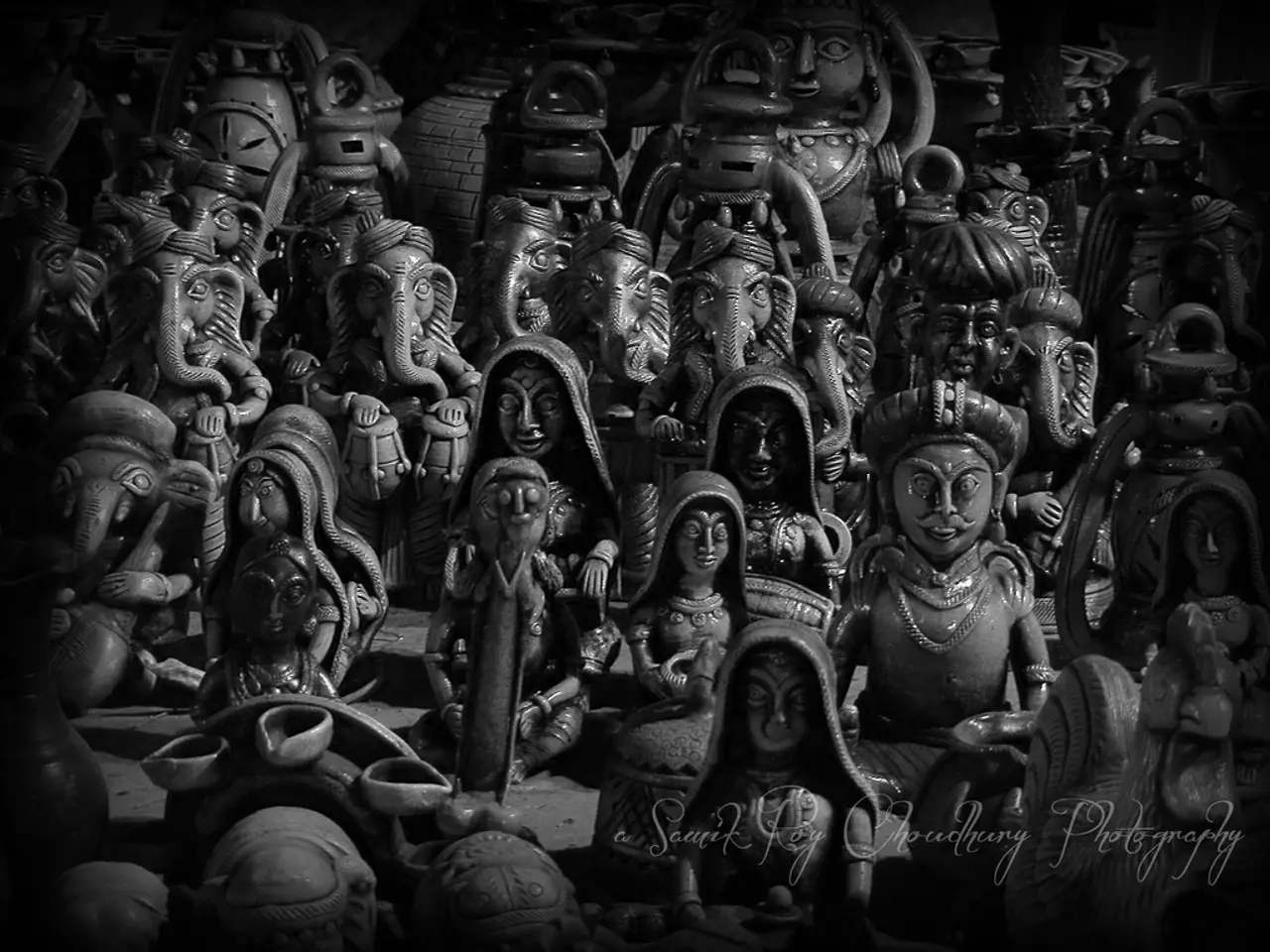Must-See Indian Cinema: Top 10 Spectacular Films to Captivate Your Senses
In the realm of cinema, Indian films stand out for their grandeur and depth. These epics, characterized by their ambitious storytelling, mythological or historical themes, and spectacular production values, have captured the hearts of audiences worldwide.
One such recent addition to this prestigious list is RRR (2022), directed by S. S. Rajamouli. This historical action fiction film offers a fictionalized account of two Indian freedom fighters, delivering high-octane action, deep friendship, and patriotic fire. The film became a global phenomenon with its Oscar-winning song "Naatu Naatu."
Another noteworthy example is Ponniyin Selvan I & II (2022-2023), directed by Mani Ratnam. This complex tale of power, succession, and intrigue in the Chola dynasty showcases the evolution of Tamil cinema on a global scale. The films, adapted from Kalki Krishnamurthy's classic novel, offer a captivating blend of historical saga and visual spectacle.
Epic Indian films often have a historical, mythological, or fantasy setting. For instance, Mughal-e-Azam (1960) showcases the tragic love story of Prince Salim and Anarkali, set against the grandeur of the Mughal Empire. Similarly, the Baahubali saga, directed by S. S. Rajamouli, is heavily influenced by the Mahabharata and features characters that reflect mythological archetypes.
These films are not just visual feasts; they also have a strong emotional core and character arcs. Lagaan (2001), a historical sports drama about an underdog village team battling British colonizers in a high-stakes cricket match, and Tanhaji: The Unsung Warrior (2020), based on the real-life exploits of Tanhaji Malusare, both demonstrate this emotional depth.
Universal themes such as honor, sacrifice, destiny, and love are common in epic Indian films. The mystery of "Why did Kattappa kill Baahubali?" is a highlight of the Baahubali saga, while the love story between Emperor Akbar and Rajput princess Jodhaa, as portrayed in Jodhaa Akbar (2008), offers a deep dive into politics, religion, and culture during the Mughal era.
The narrative complexity and scope of epic Indian films are inspired by the branching storytelling style of ancient Indian epics like the Mahabharata and Ramayana. These films frequently explore grand themes such as destiny, heroism, and moral dilemmas.
Visual grandeur and spectacle are also key elements of epic films. Large-scale action sequences, elaborate sets, vibrant costumes, and significant use of CGI and special effects create immersive worlds, raising the film's production scale and giving it an immersive, larger-than-life feel.
Such films often become cultural phenomena, with characters achieving iconic status among audiences and the films setting new benchmarks at the box office. Asoka (2001), featuring Shah Rukh Khan in a rare historical role, and Padmaavat (2018), inspired by legend, are prime examples of this cultural resonance and popularity.
In summary, an Indian film is labeled "epic" when it combines mythology-inspired narrative depth, branching plots, emotional richness, massive production scale, and cultural significance, reflecting the theatrical and storytelling traditions from which Indian cinema evolved. These films offer a unique blend of spectacle and emotional storytelling, making them a captivating and immersive cinematic experience.
- RRR and Ponniyin Selvan I & II, in the mold of grand Indian epics, captivate audiences with their historical or mythological settings, ambitious storytelling, and spectacle.
- Lagaan and Tanhaji: The Unsung Warrior, like many epic Indian films, feature complex character arcs and emotional depth, despite their historical backdrops.
- In the realm of universal themes, honor, sacrifice, destiny, and love often underscore epics like Jodhaa Akbar and the Baahubali saga.
- The narrative complexity and scope of epic Indian films, such as Mughal-e-Azam and Asoka, are influenced by ancient Indian epics like the Mahabharata and Ramayana.
- In addition to their emotional richness and narrative depth, these films boast visual grandeur, immersive worlds, and spectacle, as seen in Padmaavat and movies using CGI and special effects.
- Indeed, these cultural and cinematic phenomena, such as Asoka and Ponniyin Selvan I & II, set new benchmarks at the box office, achieve iconic status for characters, and reflect Indian cinema's theatrical and storytelling traditions.






